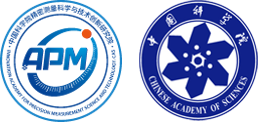

Dr. Chun-Qi Qian visit WIPM
On November 17, 2017, Doctor Chun-Qi Qian was invited to give an academic report entitled “Sensitivity Enhancement of High Resolution MRI in Cardiovascular and Kidney Imaging” in the 26th Tianjuan spectrum Youth Forum of Wuhan Institute of Physics and Mathmatics (WIPM). Prof. Xin Zhou, vice director of WIPM presided over the forum.
Dr. Qian received his Ph.D. in physical chemistry from University of California, Berkeley in 2007. He was doing postdoctoral research work in US National High Magnetic Field Laboratory and NIH since 2007. He majored in development of Electromagnetic wave detection technology, participated in a number of NIH and United States Department of Energy projects and achieved a series of results in development of MRI instruments and methods. Dr. Qian has published lots of papers in established journals such as Nat Methods, Radiology, Mag Reson Med, J Magn Reson, etc. as well as possessed one international patent and two patent in U.S.
As a technology of detecting information in organisms, compared with optical imaging, MRI is inferior in sensitivity. Dr. Qian achieved a novel technology for further improving sensitivity of MRI detecting. This technology implants a micro wireless sensor into a specific part of organisms and detects weak MRI signal sensitively. Then enlarge and emission signal wirelessly. This kind of micro sensor can get energy from external pumping coil and enlarge and emission the signal what it detected. Then the signal is received by a receive coil. This sensor can work without internal power. This sensor can also be placed in vitro to overcome the circumstances which objects can’t be adapted by coils. So far, Dr. Qian has achieved to high resolution imaging rats’ glomerular and brain blood vessels in high field. This multifunctional sensor is named WAND (Wireless Amplified NMR Detector).
The participants show great interest in Dr. Qian's report, and they had warm discussions with Dr. Qian on some academic topics.

Innovation Academy for Precision Measurement Science and Technology, CAS.
West No.30 Xiao Hong Shan, Wuhan 430071 China
Tel:+86-27-8719-8631 Fax:+86-27-8719-9291
Email:hanyeqing@wipm.ac.cn
鄂ICP备15017570号-1